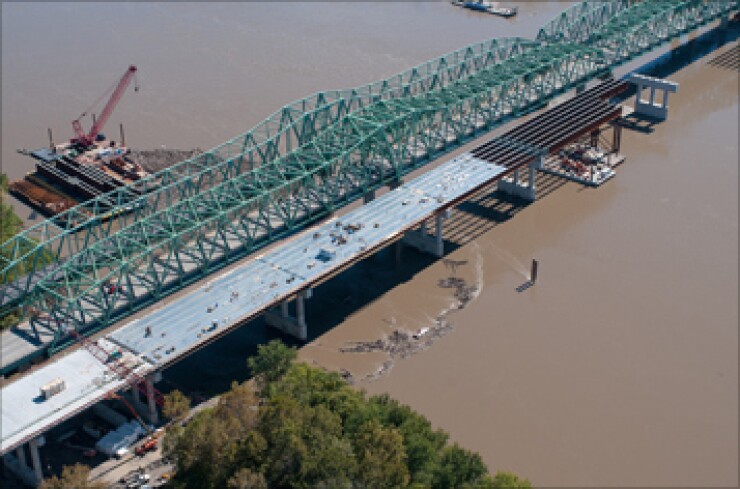
DALLAS -- A bipartisan group of former elected officials is calling on the presidential candidates to focus on how to rebuild America's crumbling infrastructure as the campaign enters its final 80 days.
"We urge you to make modernizing America's infrastructure a central feature of your campaigns and, if elected, a priority within your first 100 days of office," said the letter from the Bipartisan Policy Center to GOP nominee Donald Trump and his rival Democrat Hillary Clinton.
The letter was signed by three Republicans -- former Rep. Eric Cantor of Virginia, former Mississippi Gov. Haley Barbour, and former Rep. Steve Bartlett of Texas ---- along with two Democrats, former Los Angeles Mayor Antonio Villaraigosa, and Henry Cisneros, the former mayor of San Antonio who served as secretary of Housing and Urban Development under President Bill Clinton.
"Campaigns are by definition politically charged," the letter said. "Even in this difficult environment, infrastructure stands out as one of the few issues on which both parties can agree."
Investments in public infrastructure by the private sector could be an important source of funding for transportation and water projects, the five former officials said.
"Government cannot address the full extent of this crisis alone," they said. "Fortunately, the private sector is ready to step up to the plate with resources and expertise to help meet the nation's infrastructure needs."
The letter cited a report earlier this year from the BPC that said up to $250 billion of private investments in infrastructure could be leveraged over five years with a more comprehensive approach to public-private partnerships.
"Outdated policies, regulatory burdens, and a fundamental lack of needed data create barriers that prevent productive partnerships between the public and private sectors," the officials said. "The United States is leaving billions of dollars on the table that could be used to provide urgently needed infrastructure for America's cities, counties, towns, and rural areas."
Both candidates outlined infrastructure proposals last week in Michigan during speeches on their economic plans.
Trump told the Detroit Economic Club on Aug. 8 that he would build "the next generation of roads, bridges, railways, tunnels, seaports and airports" if he is elected in November.
There are few details at Trump's campaign web site on his infrastructure proposal.
"Trump's plan will provide the growth to boost our infrastructure, Hillary Clinton's will not," campaign officials said on his website.
Earlier this month Trump said he would "at least double" Clinton's proposed $275 billion of infrastructure spending.
"I would say at least double her numbers, and you're really going to need more than that," he said during a television interview on Aug. 2.
Clinton has proposed increased federal funding for infrastructure of $50 billion per year for five years and creation of a $25 billion federal infrastructure bank.
Clinton said at a campaign stop in Warren, Mich., on Aug. 11 that funding from her proposed infrastructure bank would leverage private investments in infrastructure.
"A big part of our plan will be unleashing the power of the private sector to create more jobs at higher pay," she said. "And that means for us, creating an infrastructure bank to get private funds off the sidelines and complement our public investments."
Clinton wants to revive and expand the Build America Bonds program to authorize the infrastructure bank to allow "Super BABs" by state and local governments.
Authorized under the American Recovery & Reinvestment Act of 2009, BABS generally could be issued only in 2009 and 2010 but remain outstanding. The provide issuers with subsidy payments from the Treasury Department equal to 35% of their interest cost, minus sequestration amounts.
"BABs are a more efficient way of helping to finance infrastructure spending than traditional tax-exempt municipal debt, as tax-exempt municipal debt ends up benefiting not just infrastructure projects but also high-income purchasers of the debt," according to Clinton's web site.





